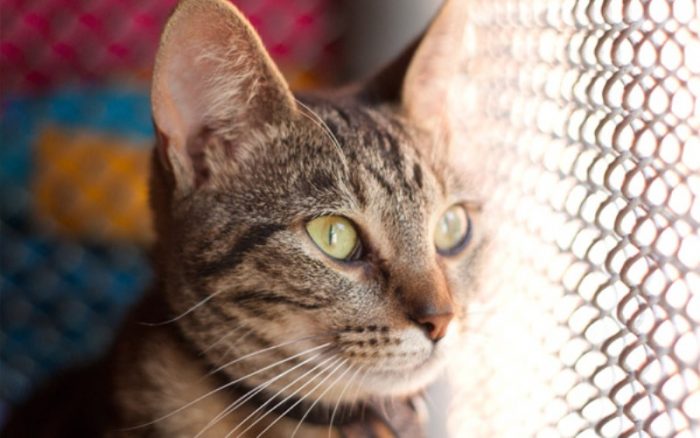Because of the adoption fee charged by animal shelters, some potential pet parents believe that adopting free kittens from a stranger in front of a grocery store or from a friend’s litter might be a better bet. These new owners seem to be ignorant of the fact that shelter cats undergo neuter or spay surgery, preventive medications, vaccinations, and health exams all factored into the adoption fee. As such, adopting a free kitten means you will start taking care of all the foregoing one by one and may end up paying more. Besides, there are many things you need to know before getting those free kittens in your home.
Table of Contents
Is It Safe To Adopt Free Kittens?
Once you have made the decision to adopt a kitten, your best bet is to go through a reputable breeder or shelter where the cats are neutered, spayed, fully vaccinated, and with a clean bill of health. The shelters also screen their cats for behavioral problems. The adoption fee you will pay covers all the aforementioned services and is considered less than what you may likely spend having them done after adoption. Again, adopting from a reputable shelter is good because the staff members at these shelters are well trained; they know the right cat for each home.
While the allure of adopting free kittens may be strong, you should weigh the pros and cons against getting a cat from a good shelter. Besides, free kittens may get you into unbudgeted costs when they start manifesting some congenital health problems, which you would have been able to avoid with the shelter cats. Even the behavioral problems that may arise will still hinder training and you may end up with an un-trainable cat.
What Is The Best Age For Adopting A Cat?
This cannot be determined without first considering the benefits and downsides of adopting a younger or older kitten. Regardless of age, every feline has something special for you; however, you must heed some important considerations to aid you in making the best decision.
Kittens
In addition to being a lot of work, kittens are fun and are best adopted at 12 weeks old.
- Benefits
1. Fresh start – Adopting a kitten will give you a fresh start with your pet, more like a clean page where you will proceed to fill in the story. The young cat has not had the chance of developing behavioral problems or neurosis and is impressionable for you to mold.
2. Training gets easier – Training sessions for pet kittens commence immediately and their response to the attention, treats, or toys is encouraging. Besides, correcting them from unpalatable behaviors like biting and scratching becomes easier.
3. They bring comic relief to the table – The comic countenance of a shocked kitten after falling off the sofa, or the one that jumps high up in the air in a bid to capture a fly is just so priceless.
4. Other household pets love them –Dogs and cats already existing in the house are more likely to accept younger kitties than older ones.
- Downsides
1. Health – Kittens can come with a plethora of health issues, the least of all is a sensitive stomach, which means that you have to find the appropriate diet for the little cat. There are still special health problems like ear mites, Feline Leukemia, worms, and Ringworm.
2. They need to be kept safe – Kittens are capable of getting into anything, so pet parents must try to keep their houses clutter-free, and should constantly check for things like holes in the walls and screens.
3. Housetraining – You have to start training your kitten on how to make use of a litter box.
4. Meowing might be a problem – Curbing the meowing sound in some kittens takes some astute training, this is especially true for those that are exceptionally vocal.
Middle-Aged Cats
- Benefits
1. Personality is already developed – Adopting an older cat means that you will be briefed with the kitty’s personality before making a final decision. The breeder, shelter, or owner will tell you if the cat is good with kids and other pets.
2. Health – The healthiest time of a cat’s life is middle age. At this age, a vet should have checked them over and treated any resulting health problems.
3. Activity level – Older cats tend to be more placid and calmer.
- Downside
1. Unclear background – The background of a middle-aged cat may not be known by the shelter and you can never know if there has been a history of behavioral or personality issues.
2. Training doesn’t get easy – training for an older cat can be tough, however, unpalatable behaviors can be curbed with the aid of a water squirt bottle.
3. They are yet to go through spaying and neutering – Any cat that is yet to be fixed is expected to exhibit behavioral issues like vocalizing and humping when in heat. Spaying and neutering are best done when a kitty is up to six years or more.
Elderly Cats
Elderly cats are the ones from 10 years and above. They also have their own benefits and disadvantages when it comes to adoption.
- Benefits
1. An Act of Kindness – It is rare to see somebody who wants to adopt an elderly cat, it can only be considered an act of kindness as they cannot stay in the shelters indefinitely.
2. Behavioural problems may not be an issue – The behavioral problems you will likely observe in old cats will be different from that of younger cats.
3. Personality is full-blown – Older cats are considered more companionable than younger ones for those who wish to adopt a truly mellow kitty.
4. Activity level – Elderly cats are not likely to go hunting and get into trouble, nor will they get underfoot like your hyperactive kitten.
5. They may have been through Housetraining – It is most likely that an old cat will have gone through a complete housetraining procedure.
- Downsides
1. Training is almost impossible – Training for an elderly cat with existing behavioral issues is tough; you need loads of patients to achieve positive results.
2. Their health is not what it used to be – more health issues tend to arise in elderly cats than middle-aged ones. They are susceptible to kidney problems, arthritis, parasites, and their gums and teeth often require veterinary care.
3. Shortened time together – The lifespan of most cats would hardly exceed 16 years; thus, the time you would enjoy with your old kitty will be limited compared to kittens. Overall, choosing a cat is a personal investment, you have to decide if an older cat will suit you better than a younger one or vice versa. However, when you are armed with the potential issues of each age bracket, you will be in a better position to make an informed choice.
Read Also: What Is Cat Grass And How Do I Grow It?
Things To Consider Before Adopting Free Kittens

The Unknown
Most times, you don’t know a thing about the giver of the kitten or the cat itself. Though you can ask questions about the kitty’s lineage, medical history, disposition, and many more, it should be at the back of your mind that he is a complete stranger, probably someone desperate to dispose of the kitten. He may just be telling you all positive things to make you accept the cat.
Health Concerns
A new kitten needs things like deworming, vaccinations, treatment for fleas, and many more. At the right age, the cat will need neutering and spaying, and when you compare the cost of all these to the adoption fee you would normally pay to adopt from a shelter that has already taken care of all the foregoing, you will find out that you may be spending more. Even when the giver of the kitten comes with the claim that all these treatments have been observed, you will still refer to your vet to find out the truth, which amounts to more costs.
Under-aged Kittens
The kitten you get from these free givers might be the under-aged ones as the owners are always in a hurry to dispose of them. Besides, the kittens may not be given enough time to be properly socialized and weaned; thus behavioral issues are expected as they mature.
Feeding The Demand
You may be encouraging these people to produce more free kittens in the future. Obviously, the givers are unwilling to spay their cats but may have a rethink, if they find it difficult to give the kittens away.
The Remorse Effect
Your decision to adopt a free kitten may be regretted in the future, making you give the cat away to another family or take it to an animal shelter.
Read Also: Lungworms In Cats: Symptoms, Causes, And Treatment
What You Need To Do After Adopting Free Kittens
The first step to take after adopting a free kitten is to call on the vet for a medical exam. The vet will take care of vaccination, de-worming, and preventive medication against fleas, and any other parasite. If the cat has attained a certain age, then, it will require spaying or neutering. You may also seek advice from the vet on the right nutrition for a kitten that may be underage and may not have been properly weaned.
Once you are done with the veterinary exams, you will need to commence house training and socialization immediately. This is a bid to curb any imbibed stubbornness on time so that you don’t end up with a stubborn kitty.
